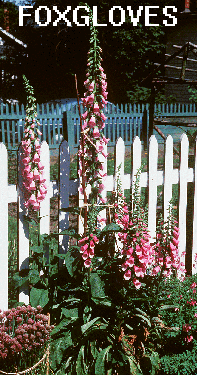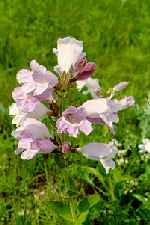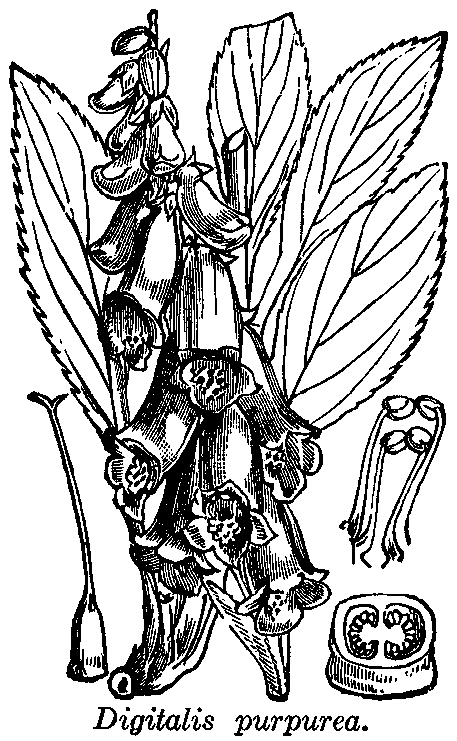
![]()

FOXGLOVE
Penstemon cobaea
Perennial
Height: 12 - 18 inches
Bloom Time: April - May (two weeks)
![]()

![]()
THESE FAMILIAR BIENNIAL, ORNAMENTAL PLANTS are members of the Snapdragon Family native to southern Europe and Asia, but highly prized in North American gardens for their tall spikes of beautiful, bell-like flowers, in pink, blue, or mauve, with dark spots inside the lip.
Foxgloves are pharmaceutical source of the heart drug, digitalis, which is poisonous in overdose. The plants are also helpful in preserving other species of cut flowers with which they may be arranged in a vase, or in stimulating the growth & endurance of garden root vegetables, especially potatoes, with which they may be planted
POISON LOCATION:
Sap, flowers, seeds, and leaves of Foxgloves, but the greatest concentration of the toxin occurs in the leaves, even dried ones.
POISON TYPE:
Digitoxin, a glycoside which stimulates the heart. A carefully prescribed dose often has miraculous effects on people with heart conditions, but an overdoes may be FATAL TYPICAL POISONING SCENARIO: Accidental consumption of leaves or flowers by livestock, or children who are attracted by the showy flowers, or the nectar, both of which contain the glycoside poison. The sugar in the glycoside breaks down during digestion, releasing the active chemical. Adults are occasionally poisoned by the misuse of herbal preparations- tea from dried Foxglove leaves is traditionally a diuretic- or by overdoses of prescribed digitalis . Like any other medicine, digitalis must be kept out of the hands of children. Another possible cause of poisoning is misidentification. The leaves of Foxgloves are easily mistaken for those of Comfrey, which are traditionally brewed for tea; both share the same general form and a coasely hairy surface. Additional confusion occurs because, in its first year, Foxgloves produce only leaves, no flowers. Foxglove leaves, however, have finely toothed edges, whereas Comfrey leaves are smooth. Digitoxin is dangerous, so Foxgloves must be treated with caution .
SYMPTOMS:
Increased heart rate, leading to heart failure in the case of overdose. Other symptoms include stomach upset, mental confusion, and convulsions. If you wish to move on, CLICK on the name to return to
Poisonous Leafy Plants
The Poison Plant Guideor the gateway to
The Poison Plant Patch
![]()
 Wildflower
Seed For Sale
Wildflower
Seed For Sale